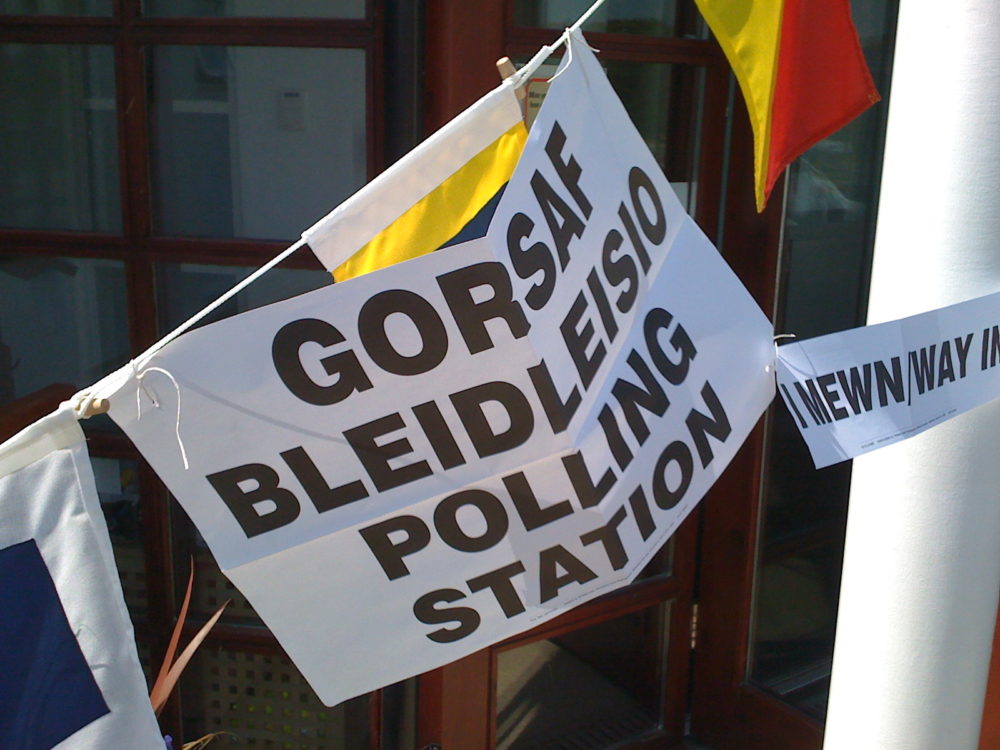Consultation shows overwhelming support for switch to Single Transferrable Vote system

Elgan Hearn, local democracy reporter
A public consultation on changing voting at council elections to the Single Transferable Vote (STV) system has been supported by 60.5 per cent of respondents.
This was more than double the number of those who supported the status quo in Powys, and want to keep the first past the post system for the next local election which is scheduled for May 2027.
At an “extraordinary” council meeting on Thursday, October 17 councillors will receive the results of the consultation which was held between August 12 and September 30 and then debate the issue.
In December last year the council agreed to allow the Powys public to have their say on whether they would like to see the next county council election held under STV.
First past the post
The results from the consultation show that of the 1270 respondents 768 which equates to 60.5 per cent support STV, while 351 responses which equates to 27.6 per cent support first past the post.
Other responses show that six per cent of people were unsure, 4.6 per cent supported another voting system and 1.3 per cent did not answer the question.
But before STV can be adopted the report explains that a two thirds majority of councillors, which means 46 of the 68 ,would need to vote in favour of the move.
This means that supporters of the STV system will have a mountain to climb to get the change agreed.
Both Labour and Conservative parties having enjoyed huge UK general election successes in recent years under the first past the post system.
Independent councillors
And during the council debate last December independent councillors feared they would struggle to be elected under STV.
Other concerns included the cost of holding an election under STV and also the time it would take to count all the votes.
Head of legal services and monitoring officer Clive Pinney said: “In order for STV to be adopted at the 2027 county council elections, the decision must be made before November 15.
“Welsh (Government) ministers and the Local Democracy and Boundary Commission must be notified of the decision within 14 days of the date of the resolution.
“This will result in a direction from the minister to the commission for to undertake a review of the electoral arrangements for Powys and to set a date for the completion of the review.”
“At the end of the process, the commission will prepare a report to the minister with recommendations.
“Based on the report an order will be made formally changing the boundaries for the May 2027 election.”
If the council does opt for STV, Mr Pinney explains it would need to be used for at least two elections before any move back to a first past the post system could be debated.
Changes would also need to be made to the ward boundaries.
There would still be 68 county councillors, but the wards would be changed from the current 52 single and eight multi member wards to all multi member wards which could vary from 12 to 23.
This means the number of councillors elected in each ward would vary from three to a maximum of six.
How does STV work?
The system allowed in Wales would see:
Voters rank candidates in order of preference for the available seats, such as one, two, three and so on.
Voters could vote for one candidate only if they so wish.
To be elected candidates would need to reach a quota which would be calculated on dividing the number of valid ballot papers by the number of seats being contested in the election.
Support our Nation today
For the price of a cup of coffee a month you can help us create an independent, not-for-profit, national news service for the people of Wales, by the people of Wales.






“To be elected candidates would need to reach a quota which would be calculated on dividing the number of valid ballot papers by the number of seats being contested in the election.”
So not on the number of votes they get then but elected by ‘quota’.
No, that’s incorrect. They’re elected by the number of votes they get. However I agree that ‘quota’ is a poor choice of words in the light of recent debates about other electoral systems.